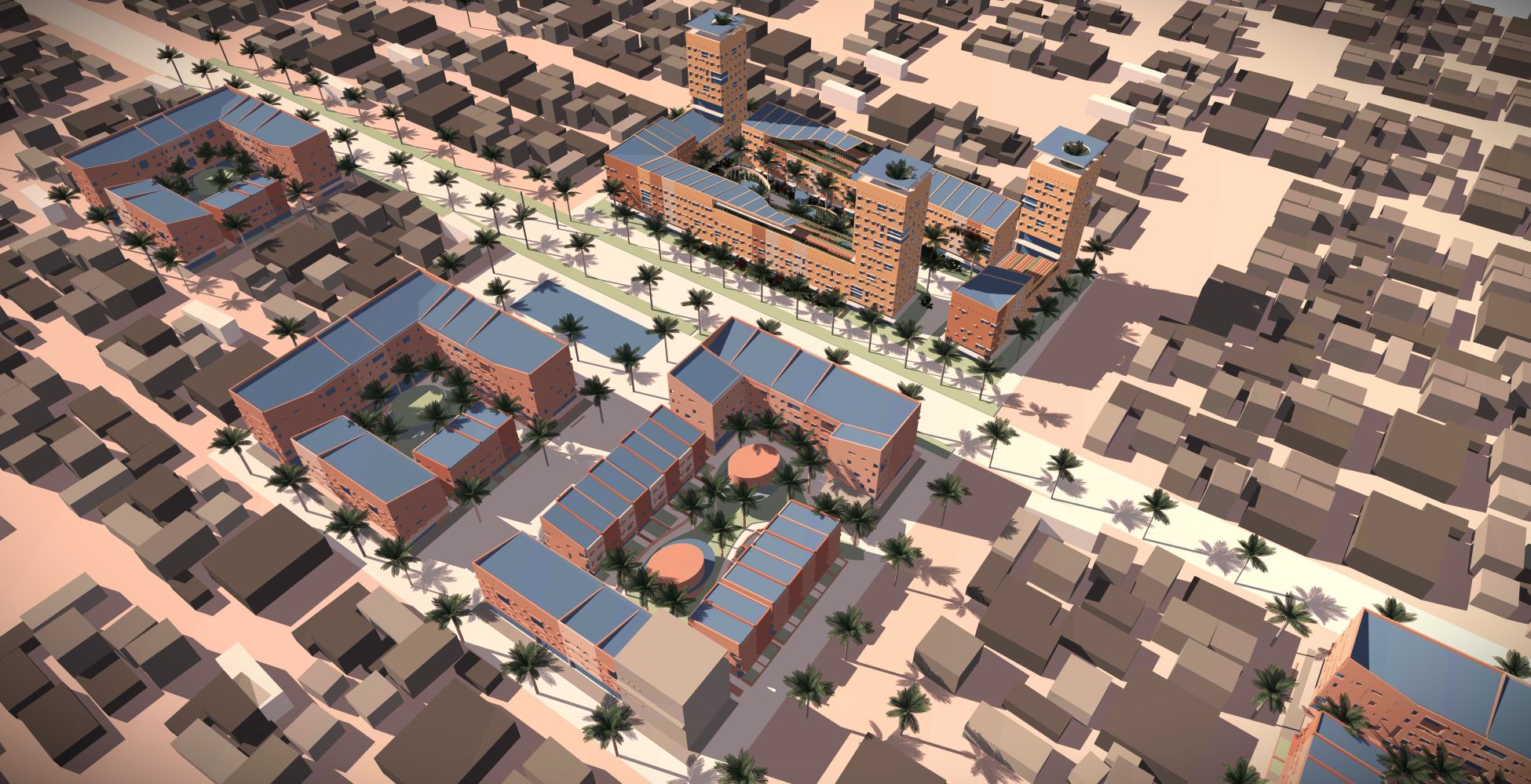
Green and Cost-Effective Urban Housing Supply in Tanzania & Zanzibar
Location
Tanzania, Zanzibar
project period
02.09.2022– 31.12.2025
client
REPIC, National Housing Cooperation, HMCI Properties Ltd
Services provided
Consultancy
Partner organisation
UN Habitat, Swisstopo, Southpole, CRAterre, Greentech (India), MinEnergy Nepal
The objective of the project is to pilot and demonstrate a decarbonised affordable housing supply chain in the Dar-Zanzibar region.
Background and origin of the project
The project was initiated by the private investor after visiting the Skat/PROECCO affordable housing project Mpazi in Kigali and its SME brick factories.
Sub-objectives
· To demonstrate the feasibility and cost-effectiveness of supplying urban housing made from green bricks produced in low carbon brick works and using smart affordable designs.
· To encourage authorities and the National Housing Corporation to promote green housing supply and inclusive urban renewal.
· To design an implementation mechanism and related services for city wide green housing supply, with a special focus on the transformation of unplanned neighbourhoods.
Outputs:
· A model building and drafts of a neighbourhood upgrading plan for inclusive urban renewal
· A city-wide roll-out concept developed with relevant key stakeholders
· A small model brick factory demonstrating its environmental and economic performance
Feasibility Study
A feasibility study was carried out in Zanzibar and Dar es Salaam in 2022. SKAT analysed the main formal and informal urbanisation patterns, policies and spatial planning efforts in both cities. Special emphasis was placed on understanding the informal neighbourhoods and different segments of housing demand, existing formal and informal housing supply channels, as well as current and past real estate and new innovative projects. Skat also conducted stakeholder interviews with authorities, real estate professionals and the housing finance sector. Finally, the study team assessed the availability and quantity of suitable natural resources and their potential to produce affordable and green building materials at the scale required to meet the demand of the emerging megacity.
Operationalisation
A scalable business model has been developed in collaboration with the local investor, the National Housing Cooperation, and with input from the financial sector. It aims to unlock the untapped potential of central informal settlements through participatory neighbourhood renewal and smart densification projects.
Settlement Transformation, Housing and Settlement Design
Following a detailed assessment of five informal settlements and sites in Dar es Salaam and Zanzibar, an urban transformation mechanism was developed to enable market-based and largely self-financed urban redevelopment of informal settlements. Typical redeveloped city blocks will be owned by the existing landowners, new investors and occasionally NHC, offering a mix of affordable and market housing, rental homes (subsidised and for market price) and commercial space and public facilities.
The current homeowners and investors will configure their block in a way that meets their individual needs and financial requirements without disrupting existing personal and business relationships within the neighbourhood and by rehousing also tenants to a largest possible extent.

